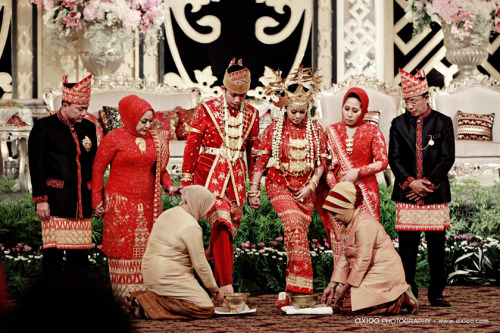Mariage Indonesian-Style
not kiss. They were disinclined to cuddle up, even when cajoled by the photographer. This reflects the traditions that persist in many parts of Indonesia. Not only had Yanti, 22, a restaurant cook, and Tri, 24, a farmer, just met, they barely knew anything about each other. “Er, what does he like to do in his spare time?’ Yanti asked a cousin the day before the wedding.



Comments